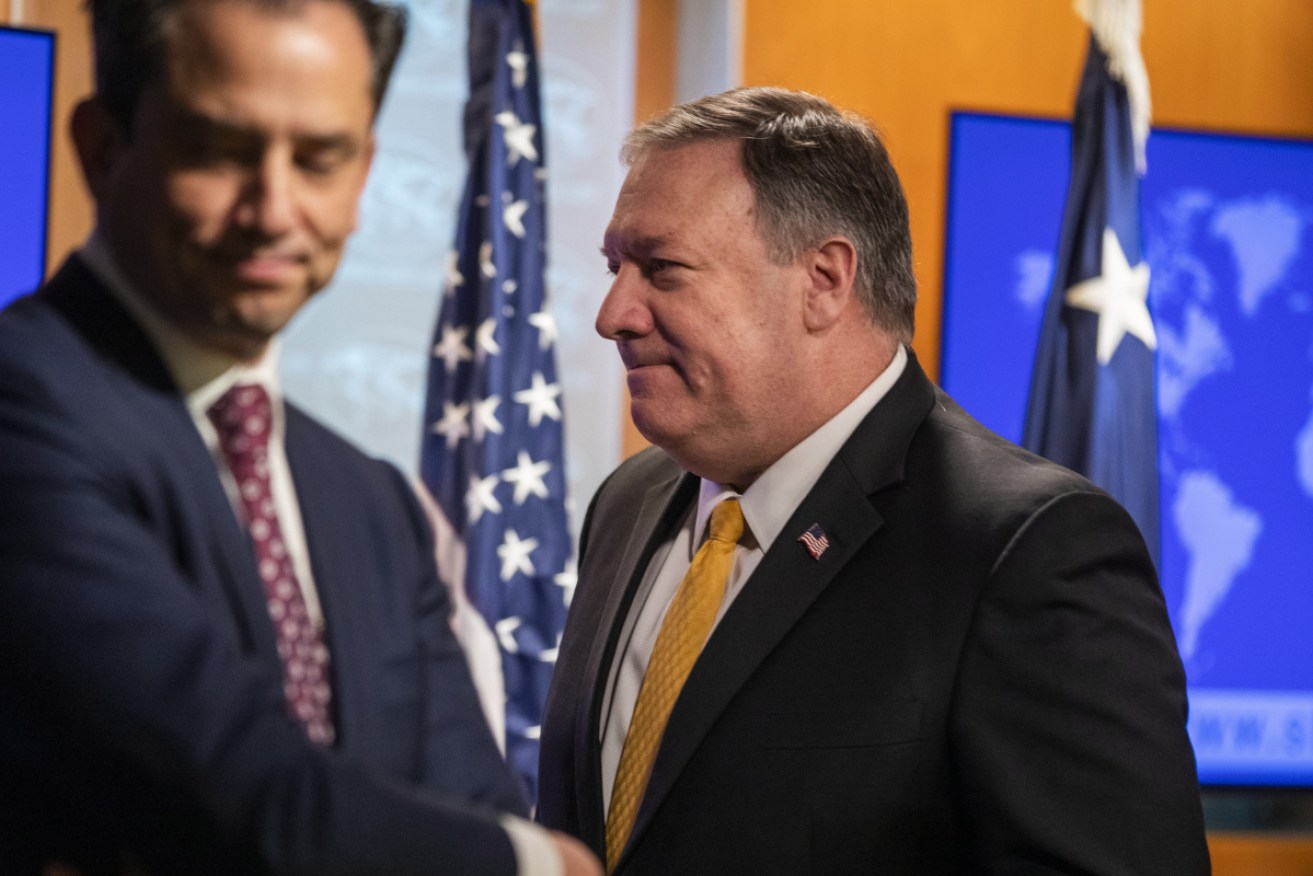Frictions mount as US suspends historic nuclear arms treaty with Russia

US Secretary of State Mike Pompeo announces the US withdrawal from the Intermediate-Range Nuclear Forces (INF) Treaty. Photo: AAP
The US has announced it will withdraw from the Intermediate-range Nuclear Forces Treaty with Russia in six months unless Moscow ends its alleged violations of the landmark 1987 arms control pact.
The US would reconsider its withdrawal if Russia, which denies violating the treaty, came into compliance with the agreement, which bans both nations from stationing short and intermediate range land-based missiles in Europe.
US Secretary of State Mike Pompeo, in announcing the move, said the United States would cease complying with the treaty starting on Sunday (Saturday local time).
The announcement may aim to pressure Russia to come to terms during the next six months but it also raised fears of a new US-Russian nuclear arms race in Europe as well as one between the United States and China in Asia.
US President Donald Trump repeated American allegations that Russia had violated the INF treaty, which limited only US and Russian arsenals, and he held out the prospect of negotiating a wider agreement, possibly including other nations.
“I hope that we’re able to get everybody in a big and beautiful room and do a new treaty that would be much better. Certainly I would like to see that,” Mr Trump told reporters on Thursday (Friday local time).
With Trump set to exit the INF Treaty, we're headed toward a new nuclear arms race https://t.co/bKKMV669J0 pic.twitter.com/snvrYbgvZv
— Forbes (@Forbes) January 31, 2019
The dispute over the INF has contributed to US-Russia frictions, now at their worst since the Cold War ended in 1991 despite Mr Trump’s stated desire for better ties.
“If Russia does not return to full and verifiable compliance with the treaty within this six-month period by verifiably destroying its INF-violating missiles, their launchers, and associated equipment, the treaty will terminate,” Mr Pompeo told reporters on Friday.
Russian officials accused the US of inventing a false pretext to exit a treaty that it wants to leave anyway so it can develop new missiles.
The US alleges a new Russian cruise missile violates the pact.

A Russian military serviceman stands near the Iskander M Missile complex during a briefing on the issue of creation ground-based cruise missile 9M729 at Patriot military exhibition center in Moscow. Photo: AAP
The missile, the Novator 9M729, is known as the SSC-8 by NATO.
The treaty required the parties to destroy ground-launched ballistic and cruise missiles with ranges of between 500 and 5500km.
Last week, the head of Russia’s military’s missile and artillery forces said the new missile’s maximum range fell short of the treaty’s lower limit.
Russia has rejected the US demand to destroy the new missile.
“America really wants to develop new weapons systems which are in breach of this treaty,” senior Russian lawmaker Konstantin Kosachyov wrote on social media.
A few hours before Mr Pompeo’s announcement, the NATO Western security alliance issued a statement saying it would “fully support” the US withdrawal notice.
Speaking before Mr Pompeo’s announcement, German Chancellor Angela Merkel emphasised the importance of using the six-month window to keep talking.
Formal US withdrawal could give the Pentagon new options to counter Chinese missile advances but experts warn the ensuing arms race could greatly escalate tensions in the Asia-Pacific.
-AP








